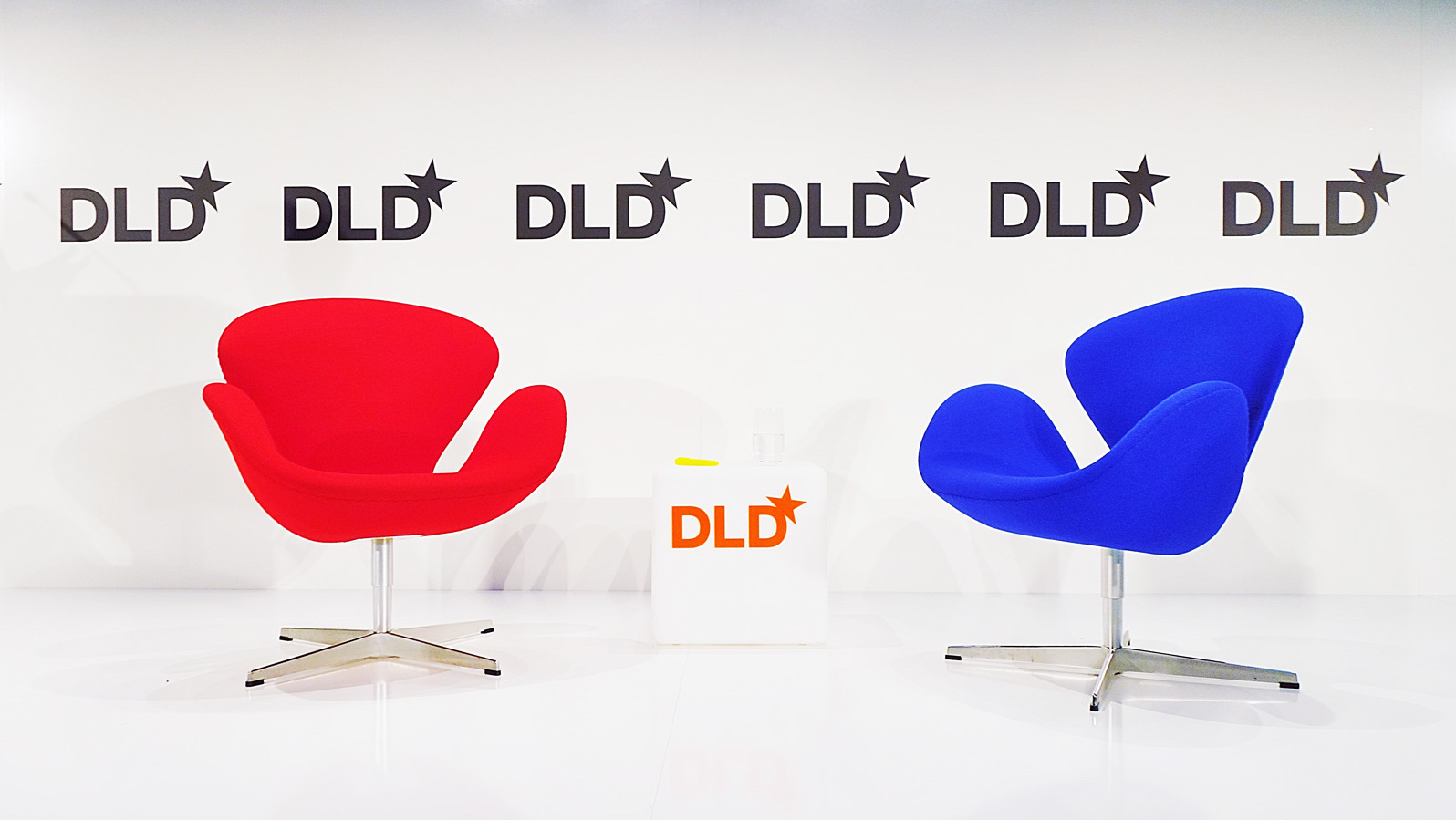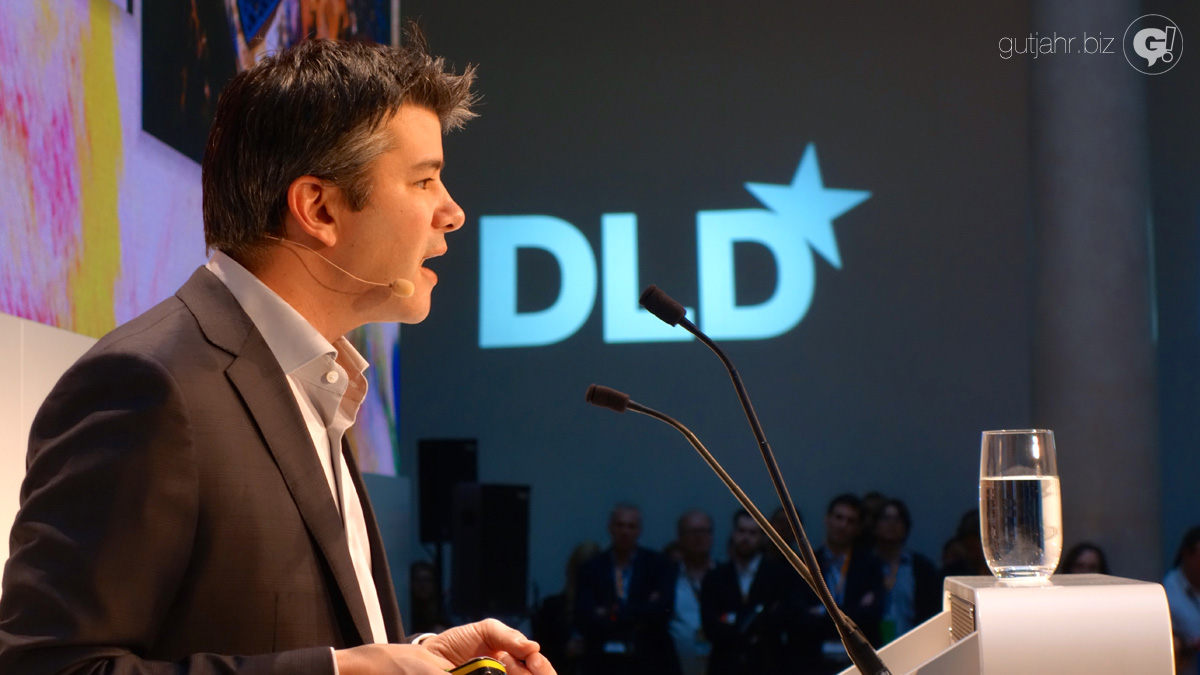Digital Dystopia
Uber-Masters and their Servants?
This post is also available in: German
Our society is in the process of becoming fully digitized. Big Data and the Internet of Things are about to turn our world upside-down. At the DLD conference in Munich there was one question that no-one had an answer for: What are we going to do about the millions of workers that will no longer be needed in the future?

The Web as a Destructive Force
”The Arab Spring?!“ – Andrew Keen is in full swing. ”Yes, Mike…!“ he sarcastically scoffs at his fellow Brit: ”…What about the Arab Spring?!“ The internet didn’t free the Egyptians, but plunged them into chaos. – ”But we need innovation if we want to solve the urgent problems of our time … “ the host whines. ”… we don’t have enough children!“ – That’s the cue his counterpart seems to have waited for: ”The reason why we don’t have enough children is because we keep playing with our iPhones all the time!“
Mike Butcher sits there as if he doesn’t to know what hit him. The DLD conference is known to be one of those euphoric future-here-we-come events, a home game for any techie; but here, talking to this belligerent interview partner before a wide audience, the TechCrunch writer is getting a lot of heat that he isn’t used to.
Gloom and Doom
Andrew Keen is promoting his book all over Europe. He is critical of technology and he has put his thoughts into a book: “The Internet is not the Answer” (German title: “The Digital Debacle”). That book needs to be sold, of course. But apart from a few catch-phrases it would be too easy to dismiss Andrew Keen as a Luddite and a technophobe. The 55-year-old lives in Berkeley, and he is well-networked throughout Silicon Valley.
In opposition to most speakers at the conference (with the exception of EU commissioner Günther Öttinger) Andrew Keen does not believe that the internet is the panacea it is made out to be. Quite the contrary: He thinks the internet and its pioneers are a destructive force, first and foremost people like billionaire investor Peter Thiel, the Google-founders Larry Page and Sergej Brin and Facebook-founder Mark Zuckerberg.
Too Good to be True
What almost gets lost in all the histrionics are the social questions that are a common theme throughout the conference, like the question of what should be done about the millions and millions of people who will lose their jobs because of Big Data and automation.
Take Travis Kalanick, the founder of Uber, present market value: $ 40 billion. In his presentation he keeps emphasizing how many new jobs he will create with his uber-efficient driver service.
You can admire the American’s courage, innovative energy and entrepreneurial spirit, but listening to him you can’t help the impression that there is a hitch there somewhere. He never mentions the countless jobs that quite literally are falling by the wayside while his brilliant ideas are being put into practice.

The Billion-Dollar Question
”Cut the middlemen“ – until one day nobody’s left standing. What shall we do about the millions of people for whom there will be no use in the future? Are we going to live in a split society where there will only be work for a small, highly-educated elite, and the bigger part of the population will be reduced to the status of a useless precariat, subsiding on a basic income provided by the government?
No-one has a solution up their sleeve – not the smart tech billionaire, not the attending investors and not the EU politicians. If we assume that the digitization of our world will go on as fast as it has progressed over the last few years, we should find answers to these questions, and we should find them soon.


Other Highlights
DLD conferences usually are timed very tightly, and so, just like in every other year, I couldn’t possibly attend all the panels I was interested in. So it is good to be able to get together with a few like-minded people and compare notes about personal highlights.
This time these poeple were the great Jeff Jarvis (buzzmachine.com), financial analyst Daniel Kröger (wiesaussieht.de) and media expert Daniel Fiene, an man of many talents (wasmitmedien.de).
Links to the topics mentioned in the video:
- Jeff Jarvis: Eurotechnopanik, DIE ZEIT
- Scott Galloway: The Four Horsemen, DLD Video
- Nick Bostrom: Superintelligenz, Buch, Amazon-Partnerlink
- Andrew Keen: The Internet is not the Answer, DLD-Video
[…] See also: UBER masters and their servants […]